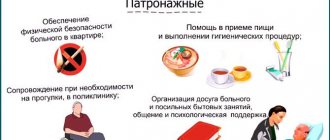What is guardianship
Guardianship is a form of protection of the rights and interests of a citizen who, due to physical or mental disorders, needs constant care.
There are three types of guardianship:
- Patronage.
- Full custody.
- Guardianship.
Patronage is caring for a capable person. This form of guardianship implies the protection of the interests of an elderly person or a disabled person in all instances and the resolution of everyday issues on the initiative of the principal.
If an elderly or disabled person is given the status of an incapacitated person by a court decision or has psychological or physical health problems, he is assigned full guardianship.
Guardianship is appointed over people whose legal capacity is limited by a court decision. This category of persons is aware of their actions, guides their actions, but due to physical limitations, they cannot fully fulfill daily needs. In some cases, guardianship is issued over people who, due to addiction to alcohol and drug addiction, put their family in a difficult financial situation.
Who can have guardianship over?
The categories of persons requiring guardianship are determined by the Family and Civil Codes of the Russian Federation.
Citizens who, due to certain life circumstances, need outside help:
- children under 14 years of age, adolescents from 14 to 18 years of age, left without parental care;
- persons declared incompetent by a court due to a mental disorder;
- persons whose rights are limited by a court order for immoral behavior (limited legal capacity);
- sensible adults who are unable to take care of themselves fully or partially for health reasons (the elderly and disabled).
Who can obtain guardianship
In most cases, a close relative of an incapacitated or limited citizen is appointed as a guardian. It is believed that it is easier for this person to obtain court approval. However, not every relative meets the established requirements:
- The guardian must be an adult with legal capacity.
- No criminal record.
- Have sincere intentions towards the mentee.
The court will also evaluate the applicant's financial capabilities and personal qualities. To do this you need:
- Have a permanent, official income.
- Have your own living space. If relatives live with the prospective guardian, it is necessary to provide the consent of these persons that they are not against cohabitation with an elderly person or a disabled person.
- Provide a reference from your place of work.
- Provide a certificate from a physician stating that the applicant does not have incurable diseases or acute viral infections.
In addition, the guardian must suffer from alcohol and drug addiction - this fact is confirmed by a certificate from a medical institution.
The status of a guardian gives the citizen certain responsibilities towards the ward:
- Caring for the elderly or disabled.
- Solving issues related to medicine (purchase of medicines, placement in a specialized medical institution, etc.).
- Representing the interests of the ward in all instances.
- Taking actions aimed at improving the quality of life of the ward.
- Disposal of his funds.
When making a decision, the court will take into account the person’s readiness to fulfill the established duties.
The necessary conditions
A citizen who wishes to be a guardian must be fully capable and of legal age.
The following citizens are not considered as candidates for guardians:
- emancipated persons aged 16 to 18 years;
- limited legal capacity;
- registered in a drug treatment or psychiatric dispensary;
- convicted for crimes against the person, life and health of citizens;
- deprived of parental rights;
- limited parental rights;
- citizens deprived of the right to be guardians;
- persons who do not have permanent registration and an apartment;
- citizens whose spouses have been declared legally incompetent;
- persons deprived of the right to be adoptive parents;
- citizens who have illnesses that prevent them from fulfilling their parental responsibilities.
Since 2021, the legislation has been amended. Now information about persons who have been deprived of parental rights, limited in them, released from the duties of a guardian and deprived of the right to be adoptive parents, is transferred to the regional data bank.
If previously information was requested only in regions where the person was previously registered, now it will be more difficult to mislead specialists. The information is transferred to a common information system throughout the country.
How to obtain guardianship for an elderly or disabled person
Elderly people and disabled people of groups 1 and 2 are often not able to fully take responsibility for their actions. Sometimes this feature threatens their life and the lives of others. If the court finds such a person incompetent, a guardian is appointed for him. If a person is recognized as partially capable, guardianship is established over him.
In order to receive a positive decision, it is necessary to send a request to the guardianship and trusteeship authority. This authority collects evidence of the ward’s incapacity and sends a package of documents to the court.
After the court has made a decision, the guardian must again appear before the guardianship authority. Within 7 days from the date of repeated application, employees of the municipal organization will check the applicant’s living conditions and assess the degree of preparation of the living space.
Registration of guardianship for people over 80 years of age follows the same algorithm. If an elderly person is recognized as competent, patronage is assigned. It is worth considering that the Social Insurance Fund provides additional financial assistance for persons over 80 years of age. The purpose of these payments is to cover the costs of foster care. If full guardianship has been established, monetary compensation is issued by the guardian. The main condition is that the guardian must be officially recognized as unemployed.
It should be noted that disability group 2 must be confirmed annually. If MSEC changes the group, the guardian will have to go through a new procedure for establishing guardianship.
Group 2 disability allows a person to refuse the help of a caregiver at any time. Group 1 disability is characterized by a complete lack of self-care.
Duties and responsibilities of a guardian
From the moment a decision is made to appoint guardianship, a citizen is vested with the rights and responsibilities of a guardian. Rights are confirmed not only by the resolution, but also by the certificate of the representative.
The guardian is obliged:
- provide the ward with food in accordance with age and health status;
- provide the ward with timely medical care;
- provide minors or incapacitated citizens with clothing and footwear, according to age and season;
- protect the civil and property rights of the ward;
- represent interests in government and judicial authorities;
- provide the minor with the opportunity to study.
Specialists of the guardianship department monitor the performance of duties. In case of improper execution, the citizen is deprived of the opportunity to re-register guardianship.
Specialists carry out monitoring by visiting the guardian’s home.
| No. | Frequency of inspections |
| 1 | Within 30 days from the date of registration of guardianship |
| 2 | Once every 3 months – during the first year after registration of guardianship |
| 3 | Once every 6 months – until the end of guardianship |
Every year, a citizen is required to provide information about the safety of the ward’s property. For this purpose, a report is submitted before February 1. It must contain information about the accounts, real estate and movable property of the minor or incapacitated person.
What documents need to be prepared to register guardianship?
In order to confirm your desire to become a guardian, you must provide the following documents to the guardianship and trusteeship authority:
- Statement.
- Autobiography.
- Passport or other identity document.
- Medical certificate of health.
- Certificate of employment or other document reflecting income level.
- Certificate of no criminal record.
- Certificate from a narcologist.
- A document confirming the availability of living space.
- Consent of persons living with the applicant in the same living space.
- MSEC conclusion on assignment of a disability group.
- A court decision declaring a person incompetent.
This is a general package of documents. It should be noted that in each specific case the applicant may need additional information.
The procedure for establishing guardianship over an incapacitated citizen
The procedure for establishing guardianship (trusteeship) over an incapacitated person (limited in legal capacity)
citizen
1. The basis for appointing a guardian (trustee) to a citizen is a court decision by which the citizen is declared incompetent or limited in legal capacity.
1.1. A case to declare a citizen incompetent due to a mental disorder may be initiated in court on the basis of a statement:
- members of his family, close relatives (parents, children, brothers, sisters), regardless of their residence together with him;
— guardianship and trusteeship authority;
— a medical organization providing psychiatric care;
- an inpatient social service organization intended for persons suffering from mental disorders.
The application for declaring a citizen incompetent must set out the circumstances indicating that the citizen has a mental disorder, as a result of which he cannot understand the meaning of his actions or control them.
1.2. A case of restriction of a citizen’s legal capacity due to a mental disorder can understand the meaning of his actions or manage them only with the help of other persons, and also due to addiction to gambling, alcohol or drug abuse, can be initiated in court on the basis of a statement:
- members of his family;
— guardianship and trusteeship authority;
— a medical organization providing psychiatric care.
The application to limit the legal capacity of a citizen must set out the circumstances indicating that the citizen suffers from a mental disorder and needs the help of other persons, and also has an addiction to gambling or abuses alcoholic beverages or drugs, putting his family in a difficult financial situation .
1.3. An application to limit a citizen’s legal capacity or to recognize a citizen as incompetent is submitted to the court at the place of residence of such a citizen, and if the citizen is placed in a medical organization providing psychiatric care in an inpatient setting, or an inpatient social service organization intended for persons suffering from mental disorders, by the location of these organizations.
2. From the moment a court decision to recognize a citizen as incompetent (limited in legal capacity) enters into legal force, the court is obliged to inform the guardianship and trusteeship body about this within three days in order to establish guardianship (trusteeship). A guardian (trustee) is appointed by the guardianship and trusteeship body at the place of residence of the person in need of guardianship (trusteeship) within a month from the moment when the guardianship and trusteeship body became aware of the need to establish guardianship (trusteeship) over the citizen.
If there are circumstances worthy of attention, a guardian (trustee) may be appointed by the guardianship and trusteeship authority at the place of residence of the guardian (trustee).
If a person in need of guardianship (trusteeship) is not appointed a guardian (trustee) within a month, the duties of the guardian (trustee) are assigned to the guardianship and trusteeship body.
3. A citizen who has expressed a desire to become a guardian (trustee) submits the following documents to the guardianship and trusteeship authority (hereinafter referred to as the ministry) at his place of residence:
a) application for appointment as a guardian (hereinafter referred to as the application);
b) a certificate from the place of employment indicating the position and average salary for the last 12 months, and for citizens who are not in an employment relationship - another document confirming income (accepted by the guardianship and trusteeship authority within a year from the date of issue);
c) a copy of the pension certificate (for pensioners);
d) a medical report on the state of health based on the results of a medical examination (accepted by the guardianship and trusteeship authority within 3 months from the date of issue);
e) a copy of the marriage certificate (if the citizen who has expressed a desire to become a guardian is married);
f) written consent of adult family members, taking into account the opinion of children over 10 years of age living together with a citizen who has expressed a desire to become a guardian, for an adult ward to live together with a guardian;
g) a document confirming that the citizen who has expressed a desire to become a guardian has undergone training (if any);
h) autobiography.
In addition to the above documents, the citizen submits an identity document. If a representative of the applicant applies for the establishment of guardianship (trusteeship), then documents identifying the identity and powers of the representative are also submitted.
In addition to the application, consent to the processing of personal data is attached in the form approved by Ministry Order No. 121-P dated June 11, 2015 “On approval of the standard form of application for consent to the processing of personal data.”
4. In addition to the documents specified in paragraph 3 of this Procedure, a citizen who has expressed a desire to become a guardian (trustee) has the right to submit on his own initiative:
— an extract from the house (apartment) register from the place of residence or another document confirming the right to use residential premises or the right of ownership of residential premises;
— a copy of the financial personal account from the place of residence;
— a certificate confirming that the citizen who has expressed a desire to become a guardian (trustee) has no criminal record for an intentional crime against the life and health of citizens;
— a certificate of compliance of the residential premises with sanitary and technical rules and regulations;
- documents confirming income for a citizen who has expressed a desire to become a guardian (trustee) who is not in an employment relationship (certificate of income of a person who is an individual entrepreneur, in form 3-NDFL, certificate of the amount of social payments from budgets of all levels, state extra-budgetary funds and other sources);
- a certificate confirming receipt of a pension for a citizen who is a pensioner.
Documents not submitted by the applicant on his own initiative are requested by the ministry from the authorities and organizations that issue them within the framework of interdepartmental electronic information interaction.
5. The Ministry , within 7 days from the date of receipt of the application and documents, conducts an examination of the living conditions of the citizen who has expressed a desire to become a guardian (trustee).
When examining the living conditions of a citizen who has expressed a desire to become a guardian (trustee), the ministry evaluates the living conditions, personal qualities and motives of the applicant, his ability to fulfill the duties of a guardian (trustee), as well as the relationships that have developed between members of his family.
The results of the survey are indicated in the act of examining the living conditions of the citizen who has expressed a desire to become a guardian (trustee) (hereinafter referred to as the act of examining the living conditions of the citizen).
An act on the inspection of the citizen’s living conditions is drawn up within 3 days from the date of the inspection of the conditions, signed by the authorized specialist of the ministry who conducted the inspection and approved by the head.
The act on the inspection of the citizen’s living conditions is drawn up in 2 copies, one of which is sent to the citizen who has expressed a desire to become a guardian (trustee), within 3 days from the date of approval of the act on the inspection of the citizen’s living conditions, the second is kept in the ministry.
6. The Ministry , within 15 days from the date of submission of the documents provided for in paragraph 3 of this Procedure, and the act of examining the living conditions of a citizen, makes a decision on the appointment of a guardian (trustee) or on the applicant’s ability to be a guardian (trustee), which is the basis for appointing him registration as a citizen who has expressed a desire to become a guardian (trustee) or a decision to refuse to appoint a guardian (trustee) or about the applicant’s inability to be a guardian (trustee), indicating the reasons for the refusal.
7. Based on the conclusion about the applicant’s ability to be a guardian (trustee), the ministry, within 3 days from the date of signing the said conclusion, enters information about the applicant into the register of citizens who have expressed a desire to become a guardian (trustee).
8. Only adult capable citizens can be appointed as guardians (trustees), with their written consent.
Grandparents, parents, spouses, adult children, adult grandchildren, brothers and sisters of an adult ward have a priority right to be guardians (trustees) over all other persons.
In cases where a person who needs to have guardianship (trusteeship) established over him is not appointed a guardian (trustee) within a month, the fulfillment of the duties of a guardian (trustee) is temporarily assigned to the ministry, as the body of guardianship and trusteeship, at the place where the person in need of care is identified establishing guardianship (trusteeship) over him.
Guardians (trustees) are not appointed to incapacitated (limited legal capacity) citizens placed under supervision in relevant medical organizations or social service organizations that provide social services in an inpatient setting. The fulfillment of the duties of guardians (trustees) is assigned to these organizations.
Guardianship and guardianship
There are three types of guardianship and trusteeship:
- constant;
- temporary;
- preliminary.
Permanent guardianship is one of the most common adoption options. There are gratuitous and paid guardianship. In the first case, the citizen who took the child into care will receive an allowance from the state for his maintenance. In the case of paid guardianship, the person who took custody of the child has the right to receive a monthly allowance for his maintenance, as well as a one-time payment.
Guardianship and conservatorship are different from adoption from a legal perspective. The status of foster parents is fixed for life, but a citizen ceases to be a guardian when the child reaches the age of 18.
If a child is under guardianship, then the citizen responsible for him does not have the right to be his heir, receive alimony payments in the event of his incapacity, or make property claims against the ward.
What does child custody mean?
The child's mother and father are not always able to fulfill their duties. Sometimes this is explained by objective reasons (death, illness), and in some cases the reasons are the reluctance of parents (evasion, alcoholism, drug addiction).
The state takes care of such children. In 2021, there are several forms of protection for children whose parents cannot raise them:
- adoption;
- guardianship;
- paid guardianship (foster family);
- specialized organization.
To protect the child’s right to live in a family, the law gives priority to family education. The guardianship department must take all measures to select a family from among the citizens of the Russian Federation for the minor.
First of all, specialists interview the child’s close relatives (grandparents, brothers and sisters, uncles and aunts). The purpose of the survey is to obtain consent for adoption into the family.
Important! The transfer of a child to a family of strangers is possible only if the relatives refuse to formalize guardianship.
Expert opinion
Stanislav Evseev
Lawyer. Experience 12 years. Specialization: civil, family, inheritance law.
Of course, the guardianship department wants to put the minor up for adoption. But if it is possible to give the baby to relatives or if there are no candidates for adoptive parents, the selection of candidates for guardians begins.
A guardian has all the rights and responsibilities of a parent. However, there is no relationship between the ward and the guardian. Therefore, when the child reaches 18 years of age, the legal relationship between them ceases.
Important! Officially, guardianship lasts until the child reaches 14 years of age (Article 145 of the RF IC). After which it acquires additional restrictions in connection with the child receiving limited legal capacity. A new version of the legal relationship between a ward and a guardian is called guardianship. It lasts until the student’s eighteenth birthday.
According to the application
The law provides for the possibility for citizens to temporarily transfer parental responsibilities to a third party. To do this, it is necessary to obtain guardianship based on a parental application.
This is a temporary guardianship option for a minor whose mother and father can fulfill their duties, but due to a special situation they wish to transfer the duties to another citizen.
For example, a mother and father or a single parent work on a rotational basis or study full-time. During the absence of parents, their duties can be performed by the grandmother. But if an injury occurs to the child, the hospital will refuse the child surgical intervention without the consent of the parents. Therefore, registration of guardianship is necessary.
Differences between temporary guardianship and permanent guardianship:
- parents can withdraw the application and the child at any time;
- mother and father are not deprived of rights;
- the document appointing guardianship must contain the exact validity period;
- no payments are provided for the maintenance of the ward;
- the child does not receive orphan status.
Example. Karina and Alexey have a minor daughter, Marina. Alexey was offered a job in another region. Marina is in 5th grade. In order not to transfer the child in the middle of the school year, the parents decided to let her live with her grandmother until the end. They filed an application at the guardianship department, and the grandmother collected the documents. The parents left, the girl stayed to live with her grandmother. Returning home, Marina decided to go down the hill. She slipped and broke her arm. The ambulance took her to the hospital. The complex fracture required surgery. The grandmother gave consent to the manipulations. This significantly saved time in obtaining consent from parents. The girl received timely help.
Preliminary
If an orphan child needs guardianship immediately, it is possible to appoint preliminary guardianship. This is a trial version. He is appointed according to 2 documents. It is required in order not to place the child in an organization and not to change his usual way of life.
Differences between preliminary guardianship and permanent guardianship:
- appointed if the guardian has a passport of a citizen of the Russian Federation and permanent housing;
- is temporary (no more than 6 months, in exceptional cases 8 months);
- does not give the guardian the right to dispose of the pupil’s property.
If, at the end of the period, the citizen has not submitted a complete package of documents, then the child will be sent to an organization for orphans.
Types of guardianship
According to the general principle, the actions of a guardian are voluntary and free of charge. In some cases, he has the right to demand payment for the performance of duties.
Gratuitous
Guardians of minor children take responsibility for the child without paying for their work. To ensure proper care and upbringing, the state provides assistance by allocating funds for the maintenance of the child.
The activities of legal representatives of children cannot be called completely free. The state guarantees material support through payments, which are used by representatives at their discretion:
- allowance for the needs of guardians (clauses 1, 3, 4 of Article 31 of the Federal Law “On Guardianship and Trusteeship”);
- transfer of a one-time amount (8,000 rubles) when placing a child in a family (Articles 12.1, 12.2 of the Federal Law of May 19, 1995 No. 81-FZ “On state benefits for citizens with children”);
- monthly child benefit, the amount, procedure and indexation of which is established by the competent regional authorities (Articles 3, 4, 16 of the Federal Law of May 19, 1995 No. 81-FZ).
Paid
Trustees have the right to claim payment for their services in accordance with Art. 16 clauses 2, 3 of the Law “On Guardianship and Trusteeship” and Art. 145 clause 7 of the Family Code.
The reward is set:
- through concluding an agreement on paid care/patronage services;
- when drawing up an agreement on guardianship of a minor (guaranteed right specified in the additional act).
The social guardianship authority can replace the monetary value with the right to use the ward’s property free of charge for personal interests. The representative is liable for unfair use.
Temporary
In cases where it is necessary to immediately take care of an incapacitated/partially incompetent person or a child taken away from his parents on an urgent basis, it is possible to establish temporary (preliminary) guardianship (Articles 12, 13 of the Federal Law of May 19, 1995 No. 81-FZ).
Criteria for temporary care:
- long-term screening of caregivers is eliminated;
- a temporary representative has the same rights and obligations as a permanent representative;
- The duration of this type of care is six months (by decision of the social service, if necessary, extended to 8 months).
Parents who are not deprived of their rights and who are in a difficult life situation have the right to voluntarily write a statement with a desire to place the child under guardianship. The type of guardianship is temporary, because it has specific deadlines for the performance of duties.
Conditions for guardianship
Let's consider who is given guardianship. To appoint guardianship, a number of conditions must be met:
- The citizen has a conclusion on the possibility of becoming a guardian . In the absence of a document, the guardianship department will not consider the applicant’s candidacy.
- Consent of a citizen to register guardianship . After meeting the minor, the candidate must express consent in writing. Otherwise, the direction is considered completed and the refusal is counted.
- Compliance of the child's candidacy with the wishes of the candidate in conclusion . The candidacy must exactly meet all the wishes in the conclusion. For example, a girl aged 0 to 3 years. Dating a boy is impossible.
- Consent of a child over 10 years of age to custody . In accordance with Art. 57 of the RF IC requires the opinion of a minor, expressed in writing.
- Establishing contact with the child . The fact of establishing contact must be confirmed by a specialist psychologist from the organization (if the child is a student of the organization).
- Personal acquaintance with a minor . Registration of guardianship in absentia is prohibited.
- Consent from the guardianship department and the child’s legal representative (head physician of the orphanage, director of the orphanage).
If there are several candidates for accepting a minor into the family, priority is given to blood relatives. The law protects the child’s right to communicate with his family.
Lawyer's answers to questions about collecting documents for registration of guardianship
Is it possible to become a guardian for a stranger?
Yes. Nowhere is it stated that guardianship is possible only for relatives - they are only given preference if strangers also apply to the OOiP for guardianship.
What documents are needed for mother's guardianship?
If she is not recognized as incompetent, she must provide the documents specified in the section above - “Above a disabled or elderly person.” Disability does not mean incapacity: the latter is established only through the court.
Can a 16 year old child be a guardian?
According to Art. 35 of the Civil Code of the Russian Federation, only adults can be guardians. A 16-year-old child has the right to apply for a benefit for caring for a person over 80 years of age and receive 1,200 rubles monthly.
Is it possible to obtain citizenship through guardianship?
Yes. According to Art. 14 Federal Law dated May 31, 2002 No. 62-FZ, you have the right to obtain citizenship for a foreign citizen child in a simplified manner, bypassing obtaining a residence permit, if you are a citizen of the Russian Federation and have formalized guardianship.
What payments are due to caregivers of elderly people?
Able-bodied unemployed caregivers have the right to apply for a benefit in the amount of 5,500 rubles by contacting the Pension Fund or MFC. They are also entitled to a number of regional benefits - everything must be clarified with Social Security.
How to apply for guardianship or trusteeship: step-by-step instructions
Registration of guardianship is carried out with the participation of the OOiP without fail.
Procedure for the future guardian:
- Contact the OUiP for a list of documents and information about the location of the school of guardians - the courses will have to be taken in any case.
- Pass a medical examination.
- Go to school for guardians and trustees.
- Obtain written consent from the family, taking into account the opinion of children over 10 years old, if the ward will live with you.
- Submit an application for the appointment of a guardian and other documents to the Office of Internal Affairs at the place of residence of the ward.
- Wait for your living conditions to be checked – it will be scheduled within 3 days of your application.
- Receive an inspection report and enter into an agreement with the OO&P, because They are the ones who represent the interests of the incapacitated and children until a guardian is appointed.
Note! When considering guardianship, priority is given to the relatives of the ward. If there is no other way out, the contract can be drawn up with a stranger who is not biologically related to him.
Practical example:
A 68-year-old woman suffered from severe mental illness. She had no relatives, but had previously formed a friendship with a neighbor of 45 years. The latter, seeing her friend’s difficult situation, turned to the OOiP to resolve the issue of recognizing her incapacity. The appeal was approved and a court decision was made. After the verdict came into force, she also submitted an application to the OOiP to appoint herself as a guardian. The contract was drawn up, from the date of conclusion the woman became the legal representative of the incapacitated person and began to process the entitlement benefits and payments.
Preliminary guardianship
A citizen who has reached the age of 18 and has a permanent place of residence can take a child under preliminary guardianship. This right is enshrined in Art. 12 Federal Law No. 48.
To apply for preliminary guardianship, you must contact the guardianship authorities with a corresponding application and a document confirming the identity of the applicant. Employees of this institution will check the living conditions of the child, their compliance with established standards, as well as the financial capabilities of the guardian to support the minor.
The preliminary guardianship format is used in force majeure situations, when temporary registration of a child in a shelter can significantly aggravate his moral condition.
The conditions of pre-guardianship are as follows:
- the trustee must be a citizen of the Russian Federation and have a permanent place of residence;
- preliminary guardianship can be issued for six months, in exceptional situations it can be extended for another 2 months;
- If, during preliminary guardianship, the citizen responsible for the child has fulfilled all the conditions for permanent guardianship, then he will be able to receive the child for permanent upbringing. Otherwise, the child will be placed in a social institution.
Requirements for a guardian, his rights and obligations
A guardian is always a fully capable person (Clause 2 of Article 35 of the Civil Code of the Russian Federation), who meets the established requirements according to moral principles.
Close relatives (grandparents, brothers, sisters, parents and grandchildren of elderly citizens) have priority. In some cases, the role of a guardian is performed by competent government services (clause 3 of article 11 of the Federal Law of April 24, 2008 No. 48-FZ) or organizations entrusted with the responsibility (clause 4 of article 35 of the Civil Code of the Russian Federation).
There can only be one guardian. In some cases, the guardianship body, guided by the well-being of the ward, may allow two or more persons to perform duties.
Requirements for a representative of a minor:
- No criminal record. Criminal prosecution under articles of the Criminal Code of the Russian Federation against life, health, sexual integrity, freedom, honor and dignity, public safety or the presence of an outstanding conviction for serious acts are an obstacle to the establishment of guardianship.
- Traditional marriage. Persons in a same-sex marriage registered in a state where this is permitted cannot claim to be guardians. Citizens of such countries are prohibited from claiming the right to become a guardian.
- Completion of training. According to paragraph 6 of Art. 127 of the RF IC, future guardians undergo a course of preparatory psychological and pedagogical classes, upon completion of which a certificate is issued.
- No dangerous diseases. By Decree of the Government of the Russian Federation dated February 14, 2013 No. 117, it is prohibited to take custody of children to people: who have not undergone dispensary treatment for infectious diseases;
- having malignant cancer tumors;
- suffering from mental disorders;
- alcoholics, drug addicts, substance abusers;
- disabled people of group 1.
Guardians have a number of powers and bear obligations imposed by law. The fundamentals of legal relations between the guardian, the ward and the state are determined by:
- Civil Code – Art. 36-38, 41;
- Family Code – Art. 148.1;
- Federal Law “On Guardianship and Trusteeship” – Art. 15.
Rights of guardians of children and incapacitated citizens:
- represent the interests of wards as a legal representative in any situation;
- help exercise constitutional rights and monitor the performance of duties;
- choose ways to raise a minor, educational organizations, form of education;
- manage the income of the ward for the purposes and interests of the latter;
- demand social, psychological, medical, pedagogical assistance from relevant institutions.
Responsibilities (except for foster care):
- live together;
- notify the guardianship authorities of a change in the ward’s place of residence;
- take care of the physical health, mental and spiritual development of the child;
- educate, taking into account the opinion of the ward and the guardianship authorities;
- provide reports to government services on the movement of funds belonging to a minor/incapacitated person.
The social protection department has the right to include additional clauses of obligations in the document establishing guardianship, observing the interests of the ward.










